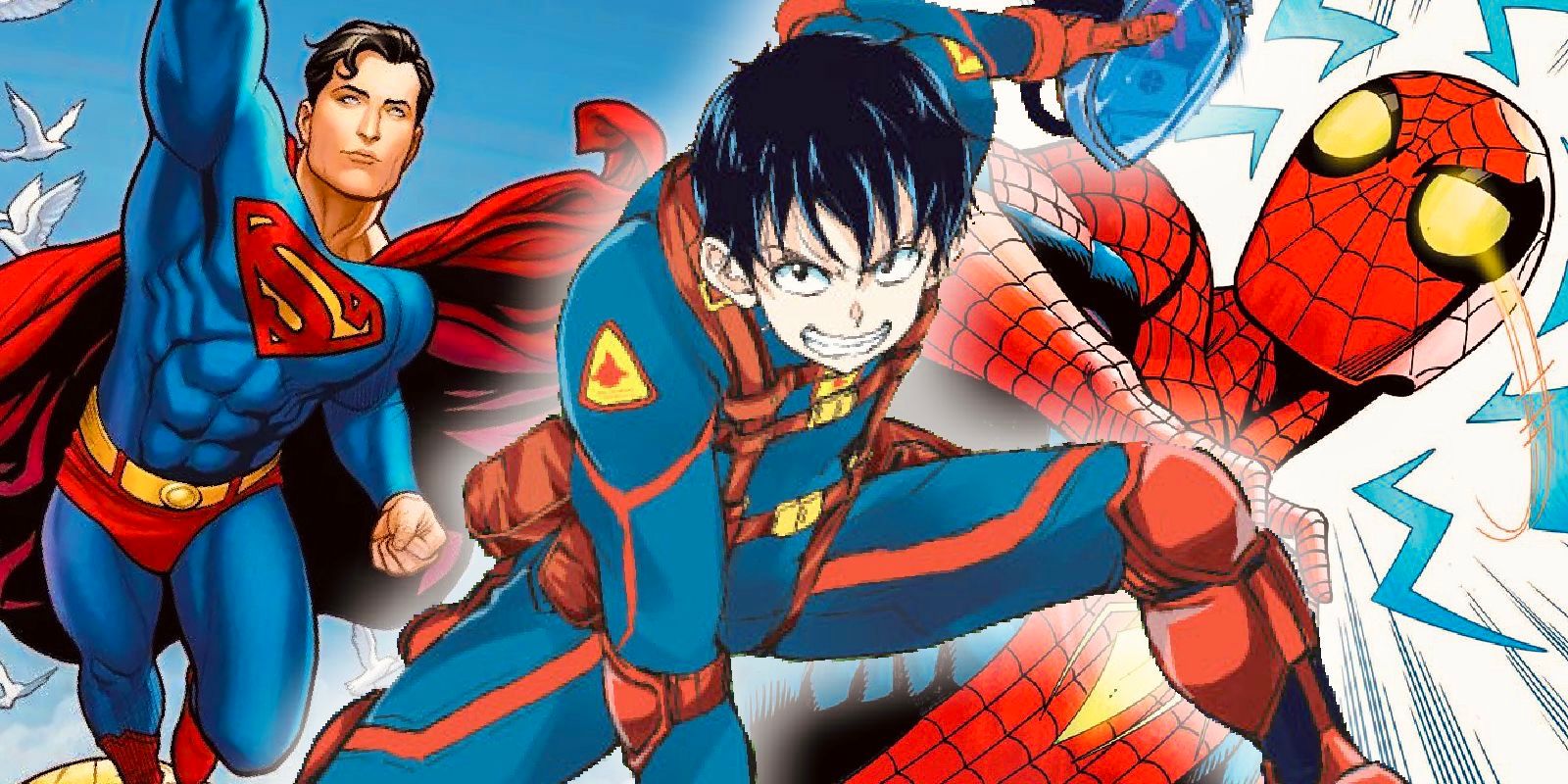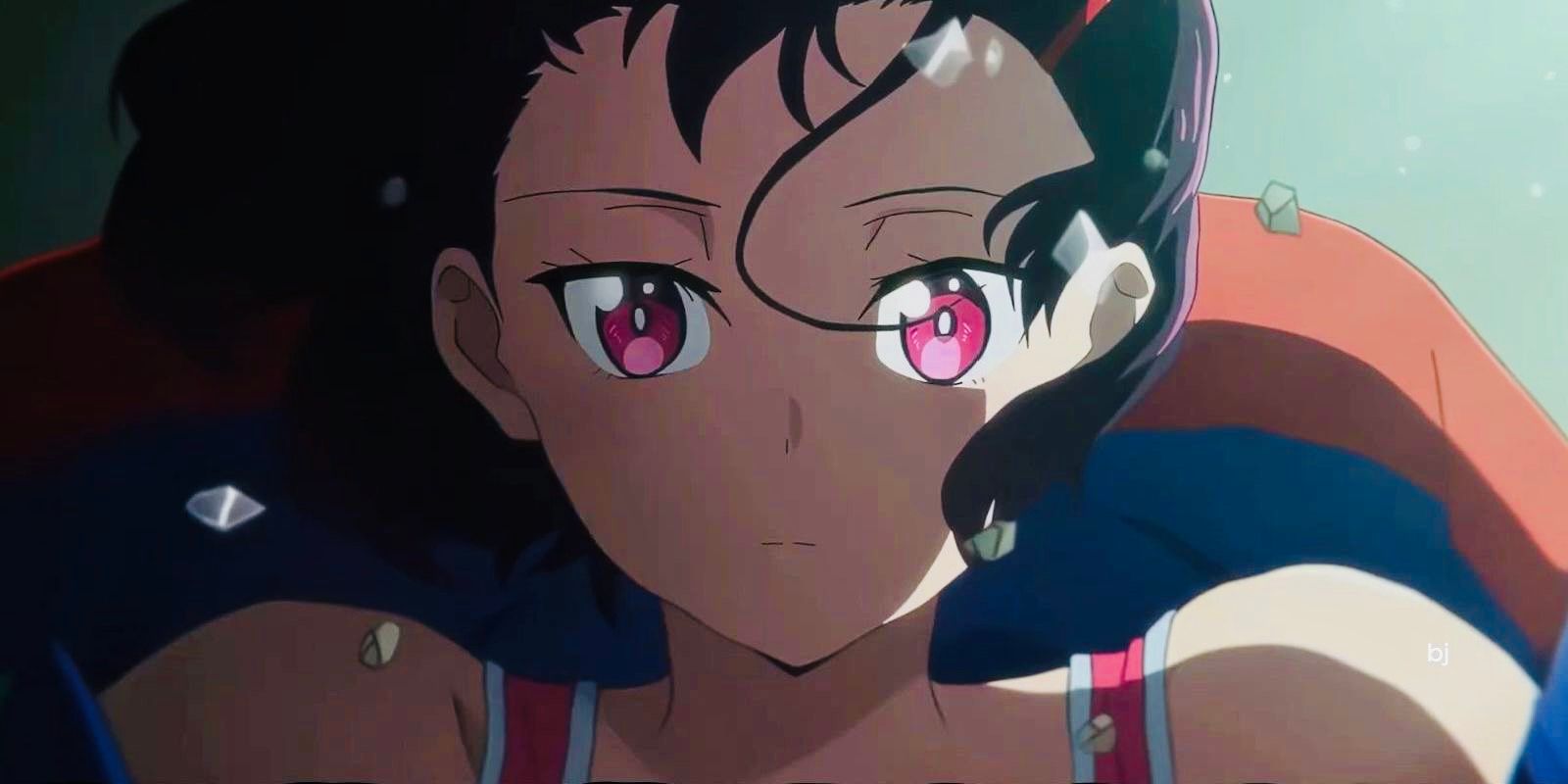Superheroes mean different things to different people. For Akira, they represent the pleasant memories and dreams of his childhood. To Shizuka though, superheroes represent an ideal that can never be achieved, and one which is only sought as a form of escapism by people who are unhappy with their life as it is.
An important aspect of Zom 100's first few episodes was Akira's struggle with remembering his childhood dream. After he was finally free to explore the things that he always wanted to but never had the chance to before, he came to the sudden realization that he had lost touch with his goals and dreams somewhere down the line. Since Akira had to struggle to remember his aspirations, the reveal ultimately made the realization that his childhood dream was to become a superhero all the more powerful for his character. That wasn't how everyone saw it, though; Shizuka's reaction to Akira's dream was to call into question his intentions for wanting to be a hero—which also calls into question the hidden motivations of pretty much every other superhero in the process.
Shizuka Calls Into Question The Motivations of Superheroes
After witnessing a display of Akira's first act of heroism as a superhero, Shizuka has a lot to say on the matter. She concludes that Akira's desire to be a hero is rooted in his need to be recognized because he is not valued by society otherwise, not to mention that he has low self-esteem. As she put it, "It's what makes men, who are typically unvalued by society and lack self-worth, wish they could become heroes."
She attributes this view to "psychologists," but in reality, it says a lot more about her personality—that is, Shizuka's opinion on superheroes represents a rationalization for her own selfishness and fear of taking risks. Ironically, Shizuka's diagnosis of Akira's dream as a "psychological defense mechanism" could just as easily apply to her own need to explain away Akira's goal. Still, the damage has already been done and the apparent validity of her theory makes Akira question what it actually means to be a hero. Akira has high ideals of what being a hero is all about, and they're largely appropriated from his favorite superhero shows as a child. As a result, he wants "to fight danger and save those in need in a kickass costume, without a reward." Values such as protecting the weak and innocent and the inevitable triumph of good over evil are things that Akira has truly come to believe in.
For Shizuka, though, such concepts are not only trivial but also unrealistic for any person to aspire to. Wanting to be a superhero is—in her eyes—nothing more than an indication of a weakened mental state. In many ways, Shizuka begins the series with a nihilistic view of the world that causes her to see values that aren't purely individualistic in nature as unimportant illusions. While values are by definition non-physical and thus can rightly be likened to illusions, they're by no means unimportant for Akira. The new world of the zombie apocalypse has finally shown him how important the feelings and values that he originally pushed aside actually were, and he wants to bring every dream that he once had into fruition, as unrealistic, silly, or trivial as that might be. For Akira, now is the most important time to embrace his dreams because he finally feels free to actually pursue them rather than suffering in office work drudgery.
Zom 100's Unique Conception of What It Means to Be a Hero
Akira doesn't receive any direct answer to his question of what it means to be a hero and instead ends up answering it himself. When zombies attack suddenly, Akira immediately acts on instinct and runs headfirst into danger, risking his own life to protect others. By just acting instead of thinking, Akira shows that the reason behind someone's heroic actions ultimately doesn't matter; all that's important is the pure action itself.
Viewed in that light, Zom 100's conception of a hero is fundamentally different from what Shizuka is associating heroes with. Shizuka is presenting a criticism that may have some psychological basis for some people but can in no way be generalized to contain every act of heroism and self-sacrifice. Shizuka's criticism of heroes is actually not at odds with what Akira has set out to be because what she is describing and what Akira actually aspires to be are two entirely different things.
Shizuka presumes that Akira must be seeking heroism for some personal gain, in turn suggesting that all interactions are essentially transactions—which is an inherently selfish attitude despite whatever intentions she has in saying so. However, as Akira tells the audience, "A hero doesn't need rewards." Akira's willingness to take risks, act spontaneously, and give without expecting anything in return can all be considered heroic characteristics held by characters in the Marvel and DC pantheons. Zom 100's version of a superhero may look different from the classic conception at first, especially considering that the series will often tackle common hero tropes in humorous ways. However, the underlying ethic of giving to others without expectations of rewards is as prevalent in Zom 100 as it ever was in Western superhero stories like Superman or Spider-Man.
Despite Shizuka's willingness to criticize Akira's brand of heroism, she unintentionally displayed much the same heroic tendency upon their first meeting in the convenience store. If Shizuka had lived entirely according to her own, purely rationalist view, there's no reason why she would have pulled Akira out of the way when a truck came barreling in his direction that day. This act was definitely a risk for her, yet her immediate reaction in that situation to save a stranger's life shows how her pure psychologizing of the hero motif doesn't apply to what a true hero is. She herself displayed the selfless spontaneity that is characteristic of the hero trope, and this act ultimately foreshadowed her later change in perspective.
Akira Rescues Shizuka In More Ways Than One
Shizuka's main goal from the outset of the series has always been to avoid becoming a zombie, and this contrasts greatly with Akira and Kencho, who are actively living their lives to the fullest in acceptance that they'll likely one day become zombies themselves. The clear difference is that Akira has embraced and accepted death and wants to enjoy life while he still can, while Shizuka fears death to the point that it somewhat paralyzes her. By saving her life in Episode 5, Akira gave Shizuka the thing most precious to her and asked nothing in return, showing Shizuka firsthand what being a hero was really all about.
Shizuka assumed that people always need a rational, self-serving reason for every action, and that's where her psychoanalysis of Akira failed. In reality, Akira shows that not everything a person does can be based purely on reason; there needs to be space for irrationality and pure creativity. The courage to take a risk without any guaranteed reward is definitely irrational, but it can also lead to the best things in life. This is a reoccurring theme in Zom 100, and the ability to take risks is something Shizuka initially lacks, which caused her to shut herself away and avoid other people. In the end, she proves that Akira changed her mind when she finally agrees to exchange contact info with him, despite it not necessarily being "safe" to do so.
Death is quite literally always chasing Kencho, Akira, and Shizuka in the form of zombies, and this has the effect of forcing each character's beliefs and ideals to move from the position of being purely conceptual to something which they are forced to act out and even become. When Shizuka's beliefs are challenged by Akira at first, she is able to push back and deny the ideals he embodies because she has the luxury of doing so. However, after being rescued by the self-proclaimed superhero, Shizuka has no choice but to face the fact that her own ideas failed in practice, and Akira inadvertently becomes the hero who saved Shizuka from herself.




